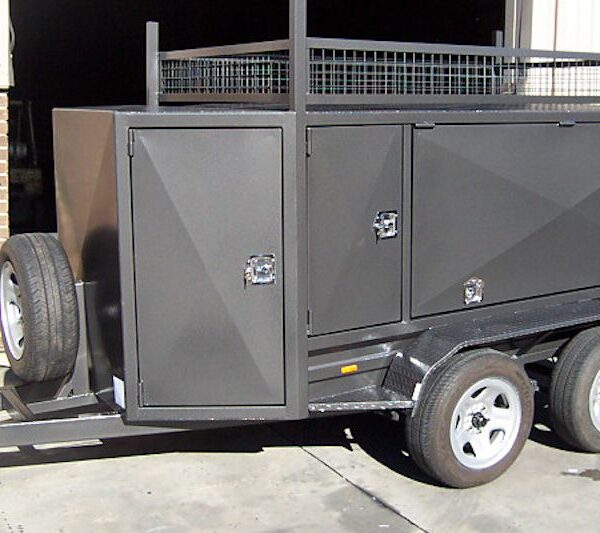
Starting a trucking business involves more than just purchasing a truck and hitting the road. One of the most crucial aspects of operating a commercial vehicle is obtaining the necessary trucking permits. Understanding and acquiring these permits can be complex, but it’s essential for legal operation and smooth business functioning. This guide will provide you with an in-depth understanding of trucking permits, their types, and the steps required to obtain them.
What Are Trucking Permits?
Trucking permits are legal documents required to operate commercial vehicles on public roads. They ensure compliance with federal, state, and local regulations. Depending on your operation’s scope, you’ll need various permits to legally transport goods. These permits are designed to regulate the industry, ensure road safety, and manage environmental impacts. To navigate this complex landscape effectively, many trucking companies turn to Trucking Permit Services. These specialized services help streamline the permit application process, ensure all regulatory requirements are met, and keep your operations running smoothly and legally.
Types of Trucking Permits
- Motor Carrier Authority (MC Number):
- The MC Number is issued by the Federal Motor Carrier Safety Administration (FMCSA) and authorizes a carrier to operate as a for-hire carrier across state lines. This permit is crucial for companies transporting goods for compensation. It also ensures compliance with federal regulations and safety standards.
- USDOT Number:
- The USDOT Number is a unique identifier assigned by the FMCSA. It is used to track a company’s safety and compliance records. All commercial vehicles engaged in interstate commerce must display this number. It’s essential for monitoring your company’s operational safety and regulatory adherence.
- International Registration Plan (IRP) Plate:
- The IRP Plate allows for the registration of a truck to operate across multiple states. Rather than registering separately in each state, the IRP Plate streamlines the process by collecting registration fees based on the miles traveled in each jurisdiction. This system simplifies administration and helps in maintaining consistency across state lines.
- International Fuel Tax Agreement (IFTA) Decal:
- The IFTA Decal is necessary for tracking fuel usage across different states. It simplifies the reporting of fuel taxes by consolidating them into a single quarterly report. This agreement helps to manage the complexity of filing separate tax reports in each state and ensures compliance with fuel tax regulations.
- Oversize/Overweight Permits:
- If your load exceeds the standard weight or size limits set by state regulations, you’ll need an oversized/overweight permit. These permits are issued by state agencies and are crucial for legal operation when transporting large or heavy loads. They often come with specific routes and conditions to ensure road safety and prevent damage to infrastructure.
- Hazardous Materials Permit (HAZMAT):
- For transporting hazardous materials, you must obtain a HAZMAT permit. This permit involves additional training and stringent safety measures. It ensures that hazardous materials are handled and transported in compliance with federal regulations, minimizing the risk to public safety and the environment.
- State-Specific Permits:
- Depending on the states in which you operate, you might need additional state-specific permits. These could include environmental permits, local road use permits, or permits for specific types of freight. Each state has its own regulations, so it’s essential to research and comply with local requirements.

Steps to Obtain Trucking Permits
- Identify Your Needs:
- The first step is to determine the permits you need based on your business operations. Consider the type of freight, the states you will operate in, and the weight and dimensions of your truck. This assessment will help you identify the specific permits required for your operations.
- Gather Required Documentation:
- Prepare all necessary documents for permit applications. This typically includes proof of insurance, vehicle registration, operating authority, and, in some cases, safety records. Having these documents ready will streamline the application process.
- Apply for Permits:
- Submit applications to the relevant agencies for the required permits. For federal permits like the MC Number and USDOT Number, you can apply through the FMCSA’s online portal. State-specific permits can be obtained from the respective state transportation departments or agencies.
- Pay Associated Fees:
- Most permit applications involve fees that vary depending on the type of permit and jurisdiction. Ensure that you pay these fees promptly to avoid any delays in receiving your permits.
- Comply with Regulatory Requirements:
- Once you have obtained the necessary permits, ensure that you comply with all associated regulations. This includes regular vehicle inspections, adherence to route restrictions for oversize/overweight loads, and timely renewal of permits.
- Maintain Accurate Records:
- Keep detailed records of all permits, including their issuance dates, expiration dates, and any renewals. Maintaining accurate records helps ensure that you stay compliant and avoid any legal issues.
Tips for Efficient Permit Management
- Stay Updated:
- Regulations and permit requirements can change. Regularly check for updates from federal and state agencies to ensure continued compliance with current regulations.
- Use Management Tools:
- Implement trucking management software or apps to keep track of permit expiration dates, compliance deadlines, and other critical information. These tools can help streamline permit management and ensure you don’t miss important deadlines.
- Seek Professional Assistance:
- If navigating the permit process feels overwhelming, consider consulting with a transportation compliance specialist. They can offer valuable guidance, help with applications, and ensure that all regulatory requirements are met.
- Educate Your Team:
- Ensure that your drivers and administrative staff are knowledgeable about permit requirements and compliance procedures. Regular training can help prevent mistakes and maintain high standards of operational efficiency.
Conclusion
Understanding and managing trucking permits is a vital part of running a successful trucking business. By familiarizing yourself with the different types of permits, following the steps to obtain them, and adhering to regulatory requirements, you can ensure smooth operations and legal compliance. Staying informed and organized will help you navigate the complexities of trucking permits and focus on growing your business. Remember, proper permit management not only ensures legal operation but also contributes to the safety and efficiency of your trucking operations.











